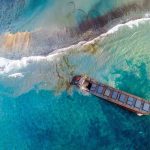The world’s first methanol propelled pilot boat has been launched by the Fastwater project, a consortium of Europe’s maritime research and technology leaders set to demonstrate the feasibility of retrofit and newbuild vessels to operate on methanol.
Launched ahead of schedule, one of the Swedish Maritime Administration’s (SMA) pilot boats was converted to run on methanol. This 14.4-metre long and 4.6-metre wide pilot boat 120 SE operates on a single methanol-fueled engine.
It features a fixed propeller and the compression ignited Methanol-MD97 engine which has diesel-like performance. The engine’s power goes up to 415 kW at 2,100 rpm.
Developed by Swedish shipping services provider ScandiNAOS, the MD97 engine fulfils IMO Tier III requirements without aftertreatments and is expected to reduce NOx by 75%.
Said to be super-efficient in terms of low fuel consumption, the pilot boat and engine are designed in cooperation with Lloyd’s Register.
As described, the new methanol powered engine was installed in a normal engine room. Double-walled fuel pipes and double-skinned tank were also installed as well as leakage and heat detectors.
“Our redesigned pilot boat is an important piece of the puzzle in our larger and broader transition work towards a completely fossil-free boat and ship fleet. The pilot boat will now be put to the test, something that happens through many hours of tough and continuous testing. Tests that will then be evaluated and analyzed”, said Fredrik Backman, head of shipping management at SMA.
During the online launch event, members of the Swedish National Parliament Johan Büser and Anders Hansson also talked about the importance of the pilot boat demonstrator.
Additionally, the pilot boat conversion process, the availability of green methanol, and the bunkering process were described.
In addition to the pilot boat, consortium members intend to demonstrate feasibility on two more vessels running on methanol fuel – a harbour tug and a coast guard vessel.
To remind, the Fastwater project focuses on high impact outcomes, designing solutions for existing ships and designs for newbuilds, demonstrating methanol as a future-proof marine fuel to create a fast track to carbon-neutral shipping. Specifically, it aims to commercialise medium and high-speed methanol-fuelled engines for shipping.
Source: Offshore Energy






